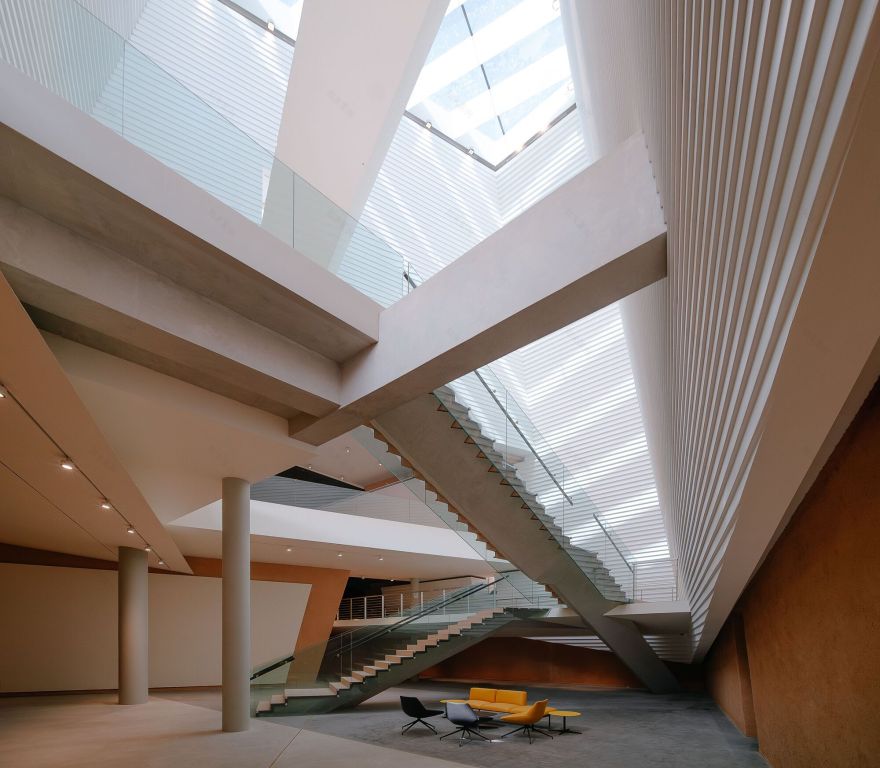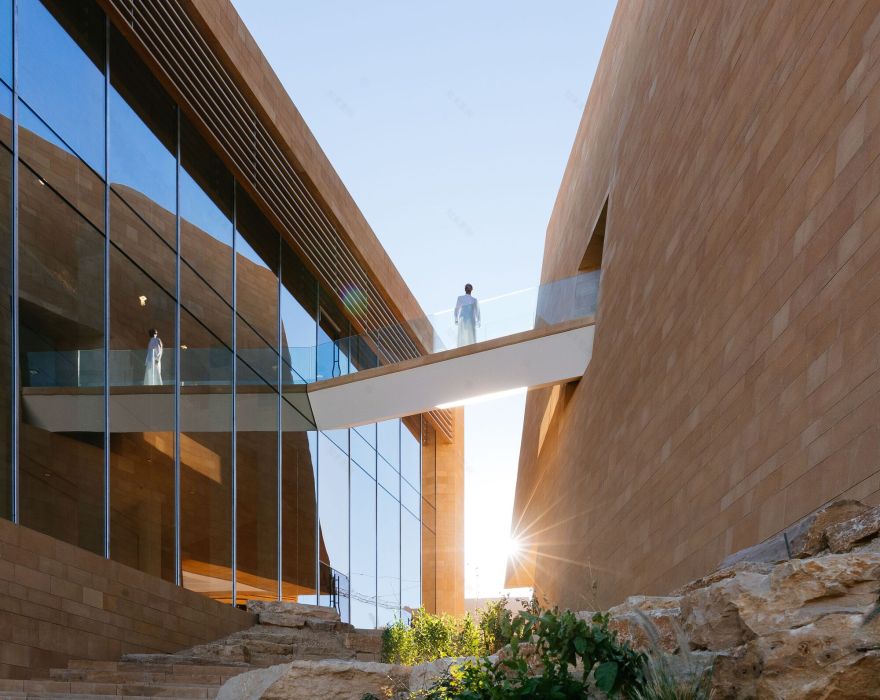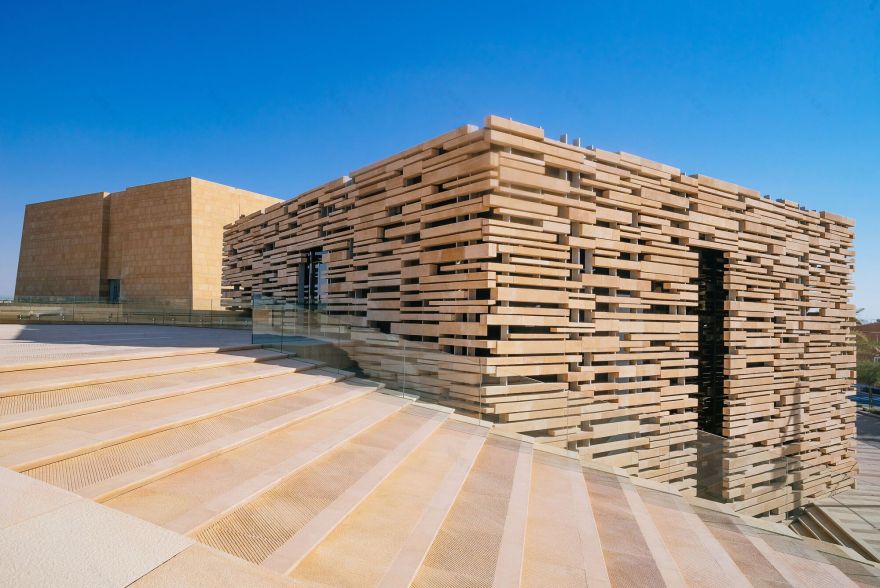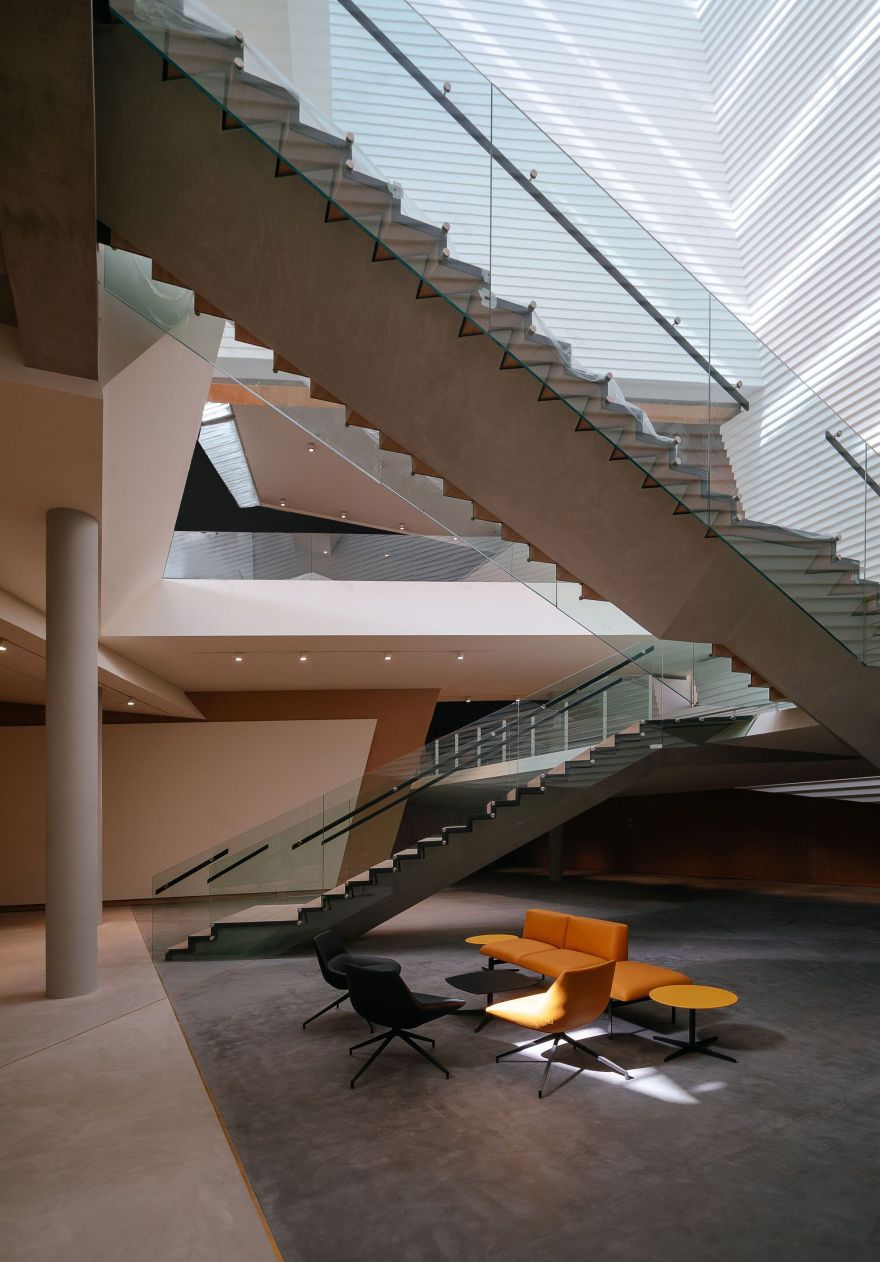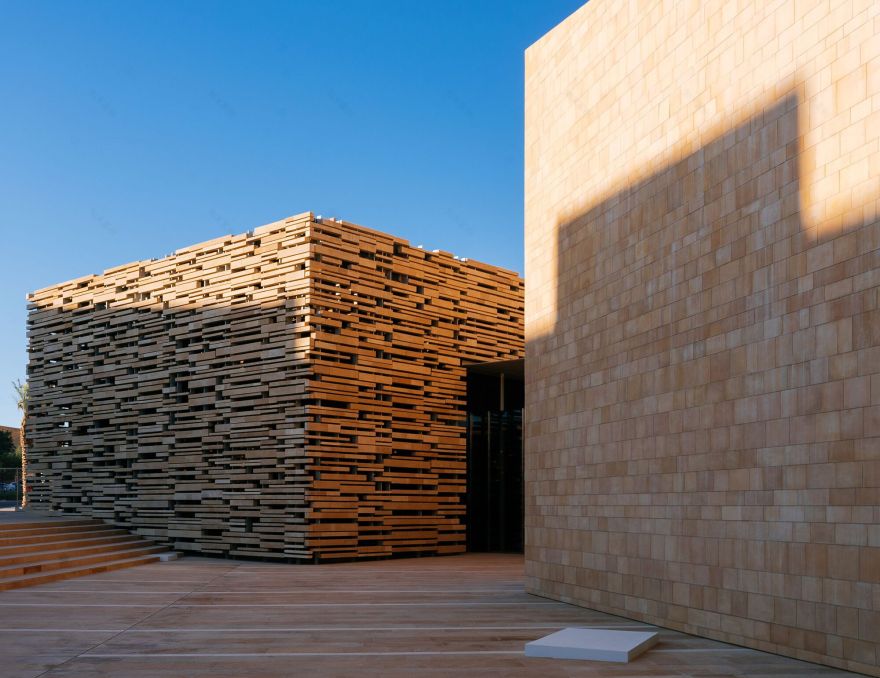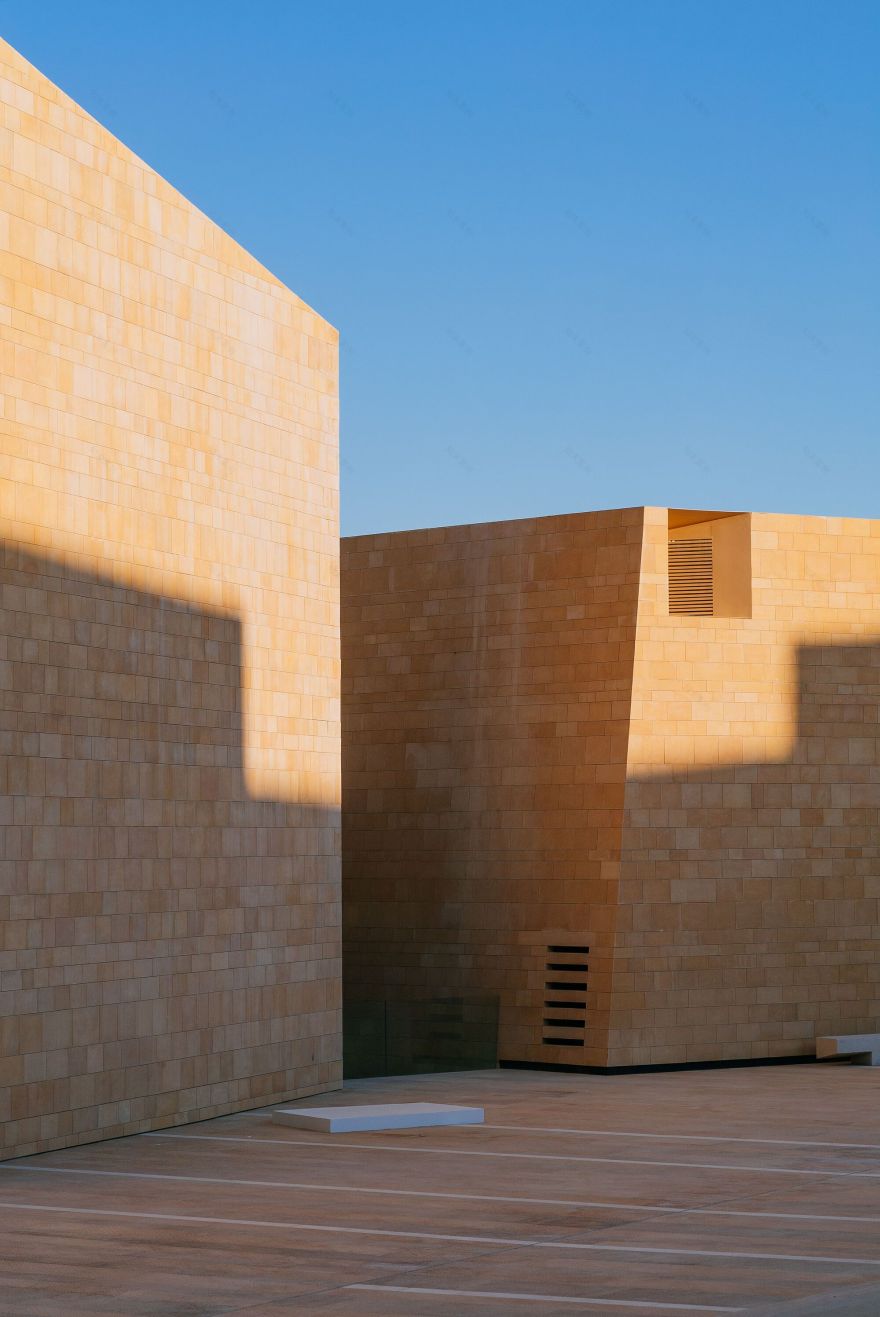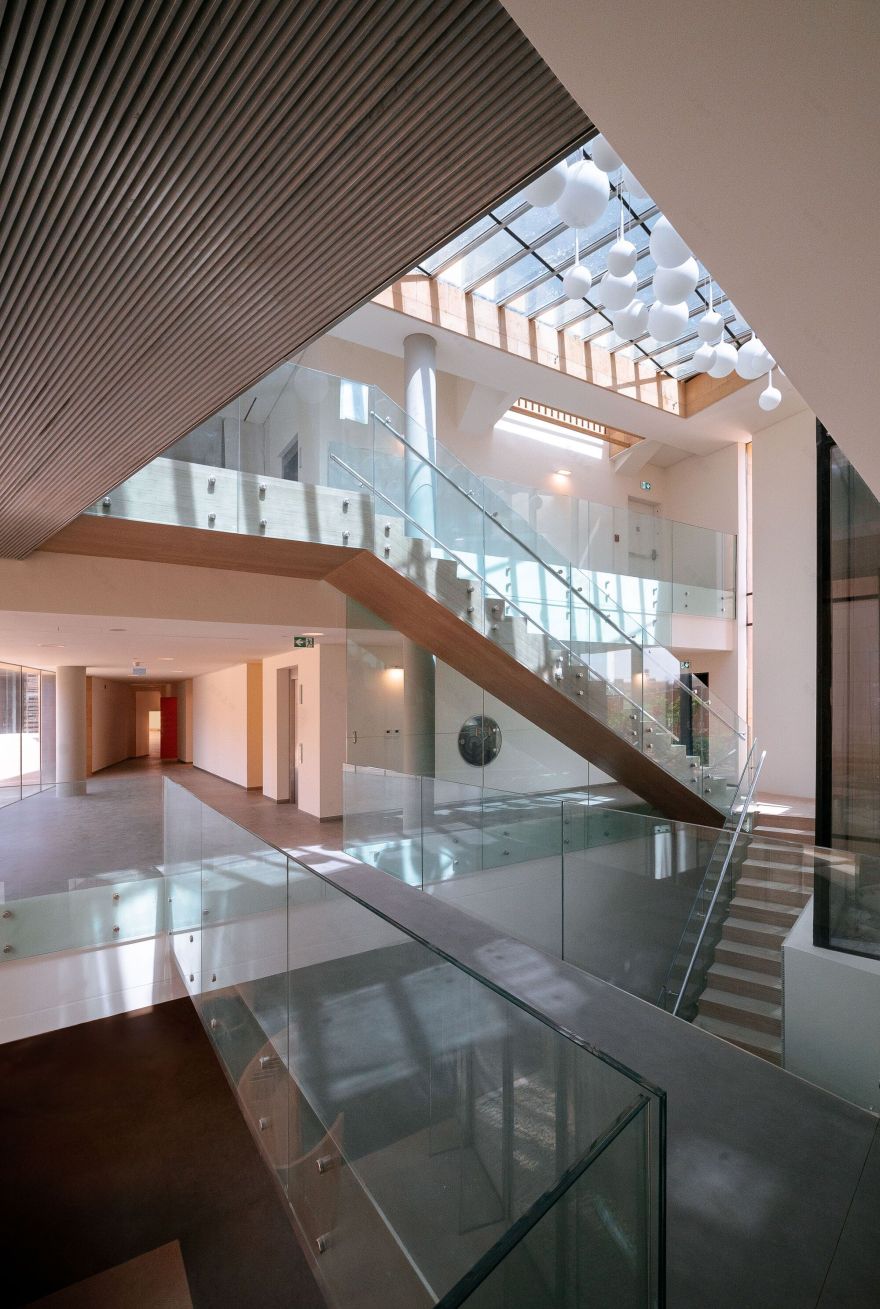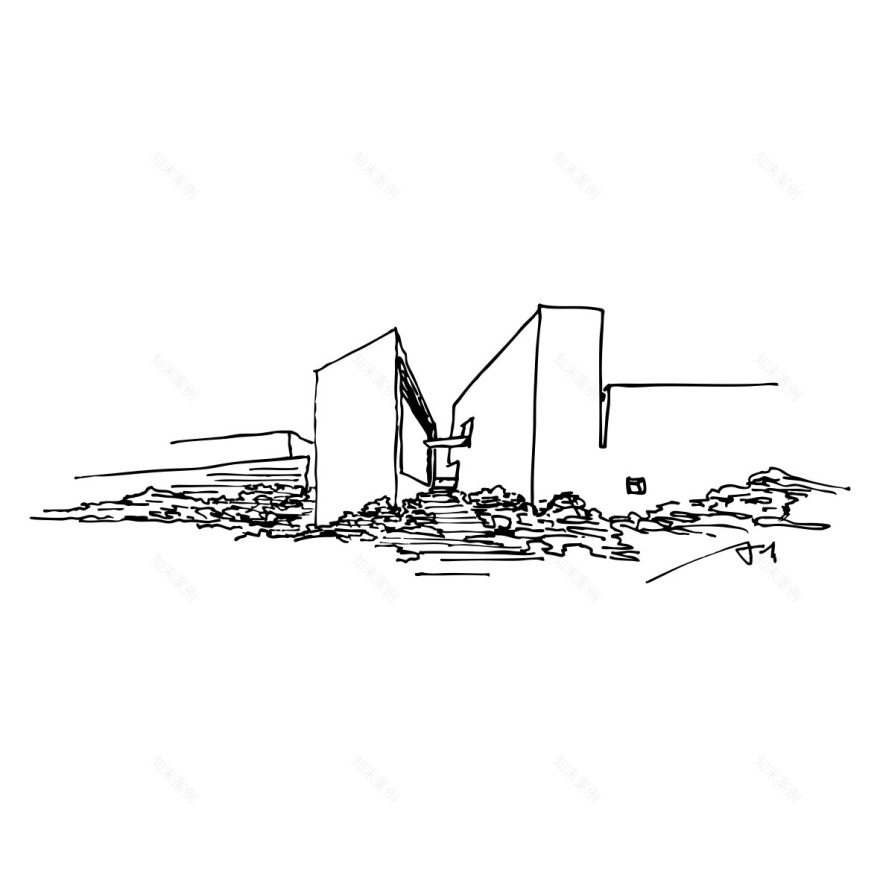查看完整案例

收藏

下载

翻译
Architects:Schiattarella Associati
Area:12000m²
Year:2024
Photographs:Mohamed Somji,Antoine Horenbeek,Hassan Al Shatti,Guido Petruccioli
PMC:EllisDon, Arcadis
Construction Management:Schiattarella Associati + Saud Consult
Structural Project:Proge77
Acoustic Specialist:P2ADESIGN
Credits:Diriyah Art Futures
Property:Ministry of Culture
Client:Diriyah Gate Development Authority, Royal
Developer:Diriyah Company
Construction:Marco
Art Direction:Schiattarella Associati
Fire Safety:SAGR
Systems Design:Euroengineering,Drisaldi Associati,Tekser
Educational Planning:Le Fresnoy - National Studio of Contemporary Arts
Cultural Consultant:Cultural Innovation
Graphics And Wayfinding:Sabir
City:Diriyah
Country:Saudi Arabia
Text description provided by the architects. On November 25th, the "Diriyah Art Futures" in Riyadh – the first museum in the Gulf designed exclusively for digital art – will open with the major exhibition Art Must Be Artificial: Perspectives of AI in the Visual Arts, curated by Jerome Neutres and featuring guests from around the world. The building, created by Italian architects Schiattarella Associati, is the first public project launched as part of Vision 2030, the ambitious plan guiding Saudi Arabia's economic, cultural, and social transformations in the coming years.
This contemporary structure is set along the desert's edge, north of Riyadh, near the UNESCO site of At-Turaif, the ancient capital of the Najd desert region and one of the Arabian Peninsula's most important historic and archaeological sites.
Commissioned and curated by the Saudi Ministry of Culture and designed by Schiattarella Associati, "DIRIYAH ART FUTURES" is led by Haytham Nawar and will house studios, exhibition spaces, research labs, artist residences, an auditorium, and a training center for new media and digital languages, in an area of 12,000 sqm.
The museum exemplifies the philosophy of Schiattarella Associati (Amedeo, Andrea, and Paola Schiattarella), an Italian architectural firm also active in Europe and with a leadership role in Saudi Arabia. Based in Rome, the international firm has been specializing in cultural public spaces for over ten years, focusing on urban design, restoration, and research to serve community and cultural interests.
A future-oriented challenge, contemporary architecture that dialogues with Najd heritage and tradition.
"We wanted the architecture to feel as though it emerged from the earth," say the architects. "This is our approach to design: harnessing natural values to create a contemporary language that resonates deeply with the location."
The "DIRIYAH ART FUTURES" is not a compact building but rather a series of lean, distinct volumes that extend horizontally along the Wadi Hanifa ridge, an agricultural depression amid the desert plateau. Designed to reconnect the urban and agricultural parts of the wadi, restoring the balance between construction and nature, they alternate with narrow, deep passages that create shaded and cool zones, following traditional Najd architecture typical of the area — a "tailoring" work with specific objectives.
"This is a boundary structure," notes Amedeo Schiattarella, "On one side lies the old historic center with its narrow streets and small buildings, and on the other the agricultural zone with gardens, fields, and wells. Between the two, city walls once served as both division and connection. Through these gates, water, crops, and building materials would enter the city. We've recreated this passageway concept, where everything connects while clearly marking boundaries."
"Global internationalization has led to a flattening of cultural diversity, with progressive standardization of urban landscapes and a loss of architectural 'biodiversity'," add Amedeo, Andrea, and Paola Schiattarella. "The true challenge today is to start from the value of diversities, working on distinctive characteristics and the specific traits of each place."
Research, innovation, and natural-based solutionsThe architecture of "Diriyah Art Futures" is waste-free, born, as is desert tradition, to answer as many needs as possible through form and spatial distribution, using site-specific conditions, materials, and knowledge. "It's a contemporary project that meets the challenge of creating a new human dimension in a historically layered land. Najd's tradition, desert architecture, is based on using construction materials directly from the site: stone, raw earth, and mud plaster. The result is a strong material continuity between soil and structure.
The spaces between the building's volumes echo the narrow streets and small squares of ancient settlements. The aim was to create compact, shaded areas where wind flows, reducing temperature and shielding pedestrians from sun and heat. To this end, ventilation channels oriented toward the wadi—the more humid area—were created. Designed with the latest sustainability principles in mind, the complex was built to optimize solar exposure and ensure energy efficiency with geothermal cooling and rainwater collection and reuse.
The interior designThe interiors, curated by Paola Schiattarella, incorporate local materials such as mud plaster and Riyadh stone—solidified sand that retains the resonance of the desert under sunlight. The Cafe features a contemporary musharabiya, reminiscent of stone walls sculpted by the wind. "A second skin that lets in light, creating inner shadow play, allowing one to see without being seen."
The building's underground core, protected from sunlight and heat, houses labs and studios for digital art. Here, materials turn contemporary: steel, glass, and cement complemented by wood—a rare material in Saudi interiors.
At the center of this underground area, a large open space serves as an artists' gathering spot, with natural light channeled in through a massive "bell" that allows light to penetrate deeply.
Schiattarella Associati: a vision of architecture"Our architecture centers on nature, humanity, and cultural values that are never identical to themselves. There is always uniqueness, unrepeatability, and randomness. At the same time, architecture must engage with geometry.
Our trade is to harmonize the consistent rigor of logical-mathematical structure with chance and the accidental. As in Diriyah Art Futures, our work always uses geometry to dynamically organize complexity, embracing contradiction as a life-giving element of architecture."
Project gallery
Project location
Address:Diriyah, Saudi Arabia
客服
消息
收藏
下载
最近









